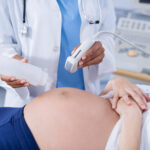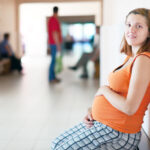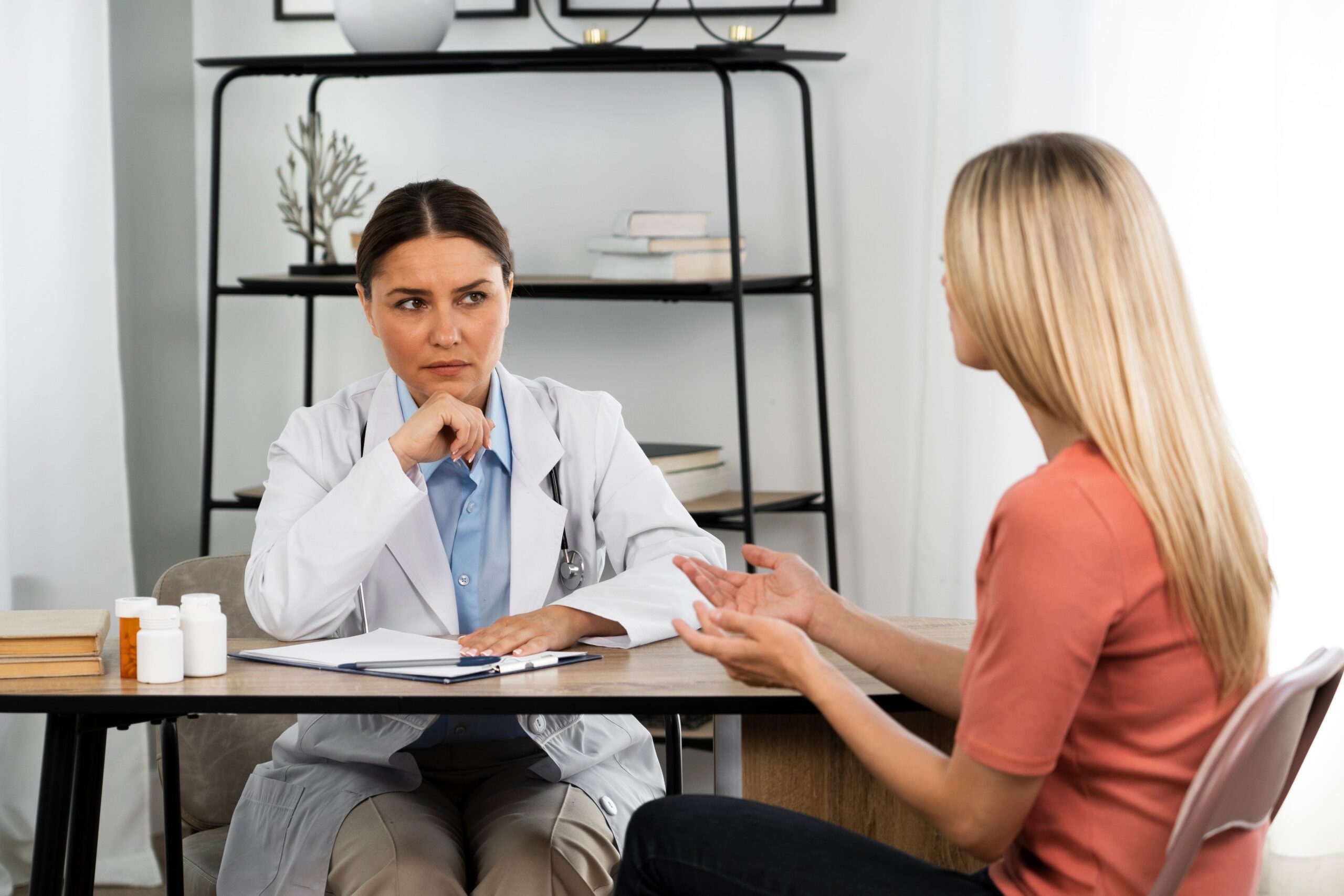What Is Endometriosis?
Endometriosis tissue is the lining inside the uterus that becomes thick and breaks down and sheds during menstruation. Endometriosis is a condition where a similar tissue lining of the uterus starts to grow outside of the uterus, which further starts to impact fertility. According to the WHO, 1 out of 10 women has endometriosis, while some are yet to be diagnosed. Sometimes, women mistakenly consider symptoms of endometriosis as bad periods.
Just like a normal uterine tissue, this responds to hormonal fluctuation during periods instead of shedding. This led to inflammation, pain, and complications. Over time, if it is left untreated, it can cause ovarian cysts, scar tissue, and adhesion.
But the question is, why do women avoid visiting a gynecologist even when they are experiencing bad periods?
Common Symptoms of Endometriosis
Severe Cramps
Endometriosis tissue outside the uterus becomes functional each cycle because of hormonal fluctuations, but without a way out of the body. It results in inflammation, with the release of prostaglandins and an increase in uterine contractions. Contractions are more forceful than normal menstrual cramps, leading to severe pain, and sometimes, it becomes even worse. If the pain becomes chronic, responding to ongoing inflammation, then it will last longer than just a menstrual cycle.
Pain During Intercourse
When endometrial lesions are present near the muscles of the pelvic floor, the vaginal walls, or ligaments, they form scar tissue and adhesions. They limit normal movement and flexibility, leading to pelvic stiffness and irritation of nerves. During sexual intercourse, the limited movement of the tissue produces stabbing or deep pain, which can last for hours or days afterwards. The pain depends on the site of the lesion, with deep infiltrating endometriosis being more intense.
Heavy or Irregular Periods
Endometrium outside the uterus experiences the same hormonal change as the uterine lining, but lacking a proper outlet can cause excessive bleeding. This causes longer, heavier, and irregular periods with unpleasant menstrual cycles that yield massive blood clots from poor endometrial shedding. Inflammation also taints hormonal balance, leading to cycle dysfunction and irregular periods.
Pain During Urination or Bowel Movements
The intestines and bladder start to cause inflammation and tissue irritation due to endometriosis. With bowel wall lesions, nerve impulses are interrupted, causing diarrhoea, constipation, or painful defecation or bowel movement, particularly during menstruation. Involvement of the bladder causes burning, pressure pain, and frequent urination that mimics urinary tract infections. Symptoms worsen as inflammation increases and bowel and bladder functions become painful.
Chronic Pelvic Pain
The tissue growth also causes chronic inflammation, which results in ongoing nerve sensitization. The areas are ultimately fibrosis and adherent, resulting in stiffness and pain within the pelvis during and after menstrual cycles. Pain usually happens in the lower back, thighs, or rectum and interferes with activities. Chronic pelvic pain typically worsens over time, affecting quality of life as well as mobility.
Infertility
Scar tissue and adhesions will block the fallopian tubes, preventing the egg from reaching the uterus. Furthermore, inflammation will impair ovulation or destroy embryo implantation, lowering pregnancy likelihood. Endometrial lesions also affect ovarian function, changing the quality of eggs. Therefore, conception will be difficult, and a number of women need fertility procedures to overcome these reproductive challenges. That’s how endometriosis fertility issues started.
Fatigue, Bloating, Nausea
Chronic inflammation does stimulate an elevation in cytokine levels, which have an impact on energy balance in the body and cause fatigue, weakness, and brain fog. The hormonal change also slows down digestion, causing bloating and nausea, particularly premenstrally. The water retention and sensitivity of the gut can also be considered as a causative factor. These symptoms are not usually considered serious concerns, but have a profound impact on daily living and need to be treated to prevent them from becoming serious health issues.
What Causes Endometriosis?
Although the causes of endometriosis are still uncertain, there are several theories that explain the development of the issue.
Retrograde Menstruation- When the menstrual blood containing endometrial cells starts to flow backwards into the pelvic cavity, it causes the growth of abnormal tissue. Some studies suggested that immune factors or hormones transform the cells that line the abdomen into endometrial-like cells. It also happens due to the absence of cell transport from the uterus directly.
Immune System Issues- The dysfunctional immune system, including peritoneal and neutrophils, and macrophages, releases the biochemical factors that promote lesion and angiogenic growth. Also, immune cells release cytokines, which further lead to inflammation, which is a key feature of endometriosis.
Genetics- If a woman’s first-degree relative, like a mother or sister, has the condition, then it passed to the condition. Based on NIH, genetic endometriosis remains unexplained. And living in a toxic environment and having unhealthy habits worsen the situation.
Hormonal Imbalances– Increase estrogen synthesis and receptor activity, create endometriotic lesions and increase cell proliferation and growth. The level disturbance of progesterone disrupts the signal pathways of hormones, causes inflammation, and interferes with the process of decidualization (high progesterone causes issues in stromal cells transforming into decidual cells).
Surgery Scars- Post-surgical healing inadvertently traps endometrial cells, which triggers the issue of endometriosis. If the endometrial cells are exposed to cuts or scars, then they transport themselves to the site to implant themselves.
How Does Endometriosis Affect Fertility?
Inflammation
Inflammation reduces ovarian reserve, affects follicular development, impairs oocyte quality, increases the risk of ovulation disorder, and adhesion scars the fallopian tube, impairing the ability to pick eggs and transport them to the uterus. It also impacts the uterine lining, making it less receptive to embryo implantation.
Avoidance of Sexual Activity
Superficial dyspareunia, which is a pain around the vaginal introitus makes it difficult to have intercourse. This also causes issues in sustaining the outcomes, leading to avoidance of engaging in any sexual activity, which makes it difficult to conceive because of the pain.
Prevent Egg Release or Fertilisation.
Scars from endometriosis cause interference in releasing eggs from ovaries, because they block the fallopian tube, preventing them from releasing eggs traveling to the uterus.
Although achieving pregnancy naturally might be difficult for you, this does not a stoppage to from living your dreams. Several treatments are available that first try to help women improve their health conditions. But, treatments like IVF are also there, which can help you to conceive, because it neglects the process of egg fertilization through the lab process.
Diagnosis of Endometriosis
Pelvic exam
First doctor examines the unusual changes by checking your pelvis and analyzing the changes like cysts, painful spots, irregular growth like nodules, or any scars.
Ultrasound
If any issue is detected during the pelvic exam ultrasound test is conducted to get an image of the inside of the body. Although it won’t confirm the issue, but can help to detect cysts.
MRI
The magnetic field and radio waves are used to get the image of the tissues and organs, which gives detailed information about the location and size of the cyst or endometriosis growth.
Laparoscopy
It is also referred to as the surgical process, where doctors check the inside of the abdomen. Through a minimally invasive surgical process, a thin tube with a camera helps to analyse the pelvic cavity. This helps the doctor to know the exact place, size, and extent of the issue.
Treatment Options
1. Pain Management:
Over-the-counter options like NSAIDs (nonsteroidal anti-inflammatory drugs), GnRG agonists, hormonal IUDs, ibuprofen, and acetaminophen are recommended by doctors to regulate hormones, relieve pain, and reduce inflammation.
2. Hormonal Therapy:
It includes birth control pills to regulate the menstrual cycle, progestin therapy to reduce the growth of endometriosis tissue, and relief of pain. GnRH agonists lower estrogen levels, causing temporary menopause, which further shrinks endometriosis tissue.
3. Surgery:
- Laparoscopy- a thin small incision is inserted along with the camera, and through the surgical tool, endometrial tissue is removed.
- Hysterectomy- In severe cases, the uterus is removed to ensure the patient’s health.
- Laparotomy- a surgical incision is made in the abdominal wall to access the pelvic cavity and then destroy the tissue causing endometriosis.
- Oophorectomy- ovaries are moved with hysterectomy, which leads to a permanent stoppage in hormone production.
4. Fertility Support:
Treatments like IVF and IUI can be conducted, because after fertilising eggs with sperm, it is directly inserted into the uterus, increasing the chance of pregnancy. And then further, you can opt for a surgical process.
Lifestyle & Home Remedies
- Heat Pads- Heat pads help to relax pelvic muscles, which reduces pain and enhances blood circulation.
- Anti-inflammatory Diet- Omega-3, whole grains, arugula, broccoli, cauliflower, sprouts, tune, and anti-oxidant foods like raspberries, blueberries, and strawberries can be added to your diet.
- Yoga- This is one of the best exercises to manage stress, improve blood circulation, and manage pain, but it is essential to deal with endometriosis. It also aids in strengthening pelvic floor muscles, contributing to pain relief.
- Support Groups and Counselling– Guidance are necessary while dealing with health issues. Cradle Children Hospital is continuously supporting women in dealing with fertility issues, because during that phase, apart from family support, support groups, and counselling help to provide peace of mind. It will also help to know the steps that you can take to prevent worse issues from getting guidance from people who have already been in this stage for way too long.
Why Choose Cradle Hospital for Endometriosis Care?
We are highly focused on a patient-centred approach, which can make your journey of treatment smoother.
- Advanced Laparoscopic Surgical Care – Minimally invasive procedures for the exact removal of endometrial tissue, keeping recovery time down and comfort high.
- Fertility-dedicated Gynaecologists- Experts are committed to preserving and optimising reproductive health, maximising the rate of pregnancy success.
- Individualised Pain & Hormone Management Plans– Customised treatment plans to remove symptoms and balance hormones, enhancing the quality of life.
- Expert Care From Diagnosis To Treatment- Caring every step along the way, from accurate diagnosis to ongoing care and recovery.
Conclusion
Endometriosis need not control your life—compassionate care can make a difference. If painful menstrual cycles, pain, or difficulty getting pregnant are causing you problems, don’t delay seeking help. Prompt diagnosis and tailored treatment can significantly change life. At Cradle Hospital, our compassionate experts offer professional gynecologic care with accuracy at each stage.
Rather than delaying, it is time to take your step towards a healthy and beautiful life. Time to contact Cradle Children’s Hospital.
FAQ’s
1 out of 10 women is affected by this issue, and it often happens to women between 30 to 40. It targets the ovaries, fallopian tube, the outer surface of the uterus, rectum, bladder, or peritoneum.
Although the specific signs are uncertain, if you experience pelvic pain, severe cramps, difficulty during bowel movement and urination, and difficulty during intercourse, these signs should not be neglected.
Yes, it can. First, it impacts your ability to conceive naturally, and if you continue to ignore the signs and the issues, then doctors recommend removing the ovaries or the uterus in a worse situation.
100%. But if you are unable to conceive naturally, it is advised to consult with experts, so that they can guide you to increase your chances.
No. There are several medications that doctors recommend to their patients based on their condition. Medications help to reduce the symptoms like pain, inflammation, etc.
“Endometriosis is more than just a gynaecological issue- It’s life life-altering situation. This chronic condition can impact emotional well-being, daily life, and fertility. Early diagnosis and compassionate care are the keys. So, must seek medical attention and listen to your doctors. Don’t normalise your pain, it can be something that you are not aware of.”





